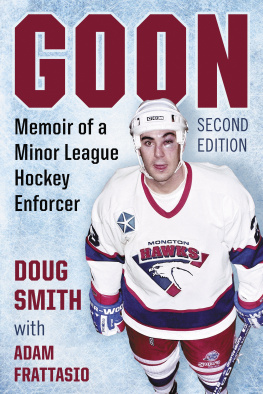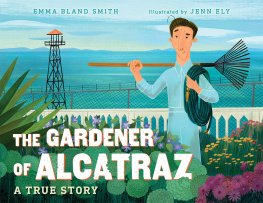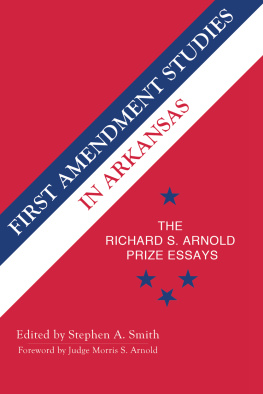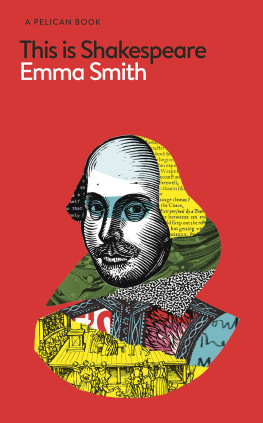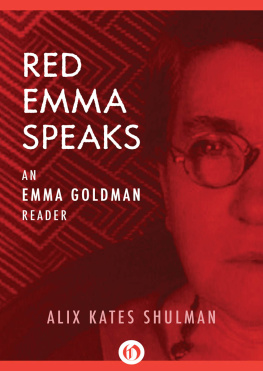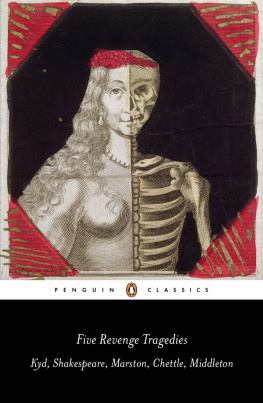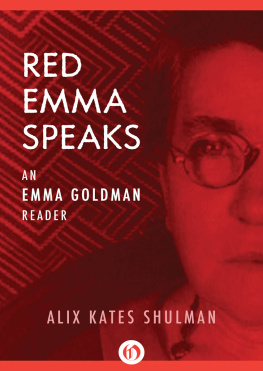
Emma Goldmans No-Conscription League and the First Amendment
Emma Goldmans Supreme Court appeal occurred during a transitional point for First Amendment law, as justices began incorporating arguments related to free expression into decisions on espionage and sedition cases. This book analyzes the communications that led to her arrestwritings in Mother Earth, a mass-mailed manifesto, and speeches related to compulsory military service during World War Ias well as the ensuing legal proceedings and media coverage. The authors place Goldmans Supreme Court appeal in the context of the more famous Schenck and Abrams trials to demonstrate her place in First Amendment history while providing insight into wartime censorship and the attitude of the mainstream press toward radical speech.
Erika J. Pribanic-Smith is an associate professor of journalism at the University of Texas at Arlington. She specializes in research examining political communication in newspapers and magazines of the nineteenth and early twentieth centuries. Specifically, she focuses on political partisanship in the press as well as the use of editorials and letters to the editor to disseminate political ideology. A former president of the American Journalism Historians Association, Pribanic-Smith has published her research in journals such as American Periodicals, American Journalism, Journalism History, Kansas History, and Media History Monographs. She is also the author of several book chapters.
Jared Schroeder is an assistant professor of journalism at Southern Methodist University. His research focuses on how we should interpret the First Amendment, particularly in regard to the Supreme Courts use of the marketplace of ideas theory and the changing technological landscape. In particular, his research has focused on discourse in virtual spaces and the growing roles that artificially intelligent communicators are playing in influencing the ideas that citizens encounter, comment upon, and share online. He is the author of The Press Clause and Digital Technologys Fourth Wave (Routledge, 2018) as well as articles in journals such as Communication Law & Policy, The Review of Higher Education, First Amendment Studies, and the Journal of Media Law & Ethics.
Emma Goldmans No-Conscription League and the First Amendment
Erika J. Pribanic-Smith and Jared Schroeder
First published 2019
by Routledge
52 Vanderbilt Avenue, New York, NY 10017
and by Routledge
2 Park Square, Milton Park, Abingdon, Oxon, OX14 4RN
Routledge is an imprint of the Taylor & Francis Group, an informa business
2019 Taylor & Francis
The right of Erika J. Pribanic-Smith and Jared Schroeder to be identified as authors of this work has been asserted by them in accordance with sections 77 and 78 of the Copyright, Designs and Patents Act 1988.
All rights reserved. No part of this book may be reprinted or reproduced or utilized in any form or by any electronic, mechanical, or other means, now known or hereafter invented, including photocopying and recording, or in any information storage or retrieval system, without permission in writing from the publishers.
Trademark notice: Product or corporate names may be trademarks or registered trademarks, and are used only for identification and explanation without intent to infringe.
Library of Congress Cataloging-in-Publication Data
A catalog record for this title has been requested
ISBN: 978-1-138-49347-6 (hbk)
ISBN: 978-1-351-02798-4 (ebk)
Typeset in Times New Roman
by Out of House Publishing
Contents
Eight men arrived at the New York office of Mother Earth magazine on June 15, 1917: U.S. Marshal Thomas McCarthy, Assistant U.S. Attorney E. M. Stanton, deputy marshals, special agents, and a bomb squad. In the second-floor office, the men found portraits of editor Emma Goldman and other anarchists, book shelves lined with neatly arranged anarchist books and pamphlets, and stacked copies of the July Mother Earth, ready for mailing on the floor. They did not find Goldman.
After a moment, she descended from the third-floor office of The Blast magazine, edited by her lifelong companion Alexander Berkman. Goldmanwhom a visitor once described as a severe but warm-hearted school teacherwore round, wire-rimmed glasses, her brown hair wound in a tight bun.
But this time was different. At the height of anti-immigrant, anti-radical war hysteria, Goldman was charged with conspiracy to defeat the draft, sentenced to two years in prison, fined $10,000, and, ultimately, deported. Within weeks of her arrest, Mother Earth suspended, falling prey to the postal restrictions of the 1917 Espionage Act. Furthermore, McCarthys men seized everything in the Mother Earth officesback issues, checkbooks, correspondence, manuscripts, and, importantly, subscription lists to be used for tracking down other radicals. The courts were unsympathetic. She left the United States in 1919 from the same city where she had arrived, departing Ellis Island on a steamer with more than 200 others that the U.S. government evicted during the first Red Scare.
Goldmans free speech struggles came just as the nation, and the court system, were becoming concerned about freedom of expression. Her federal court conviction in 1917 and the Supreme Courts decision not to hear her case the following January marked the last major instance when justices turned a blind eye to freedom of expression concerns. In fact, Goldmans friend and attorney, Harry Weinberger, was juggling her deportation case at the same time he was defending another famous anarchist, Jacob Abrams. A week before Goldman appeared before immigration officials, Weinberger had argued on Abramss behalf before the Supreme Court. Abramss case resulted in Justice Oliver Wendell Holmess famous dissent, in which he fashioned the marketplace-of-ideas interpretation of the First Amendment. Justice Holmes defended the anarchists right to speak because it contributed to the ideas that were being discussed in society. Less than a month after the Supreme Court announced its Abrams decision, Goldman was going back to Russiajust as many newspapers and public hecklers had been telling her to do for decades. It was too late for her, but Goldmans case remained in the mind of Holmes and others as they decided similar cases from that point forward.
By placing Goldmans arrest, trial, and the anti-conscription communications that led to them in the context of the eras legal environment, this book seeks to fill gaps in the literature on First Amendment scholarship and one of Americas most notorious rebels. Multiple sweeping biographies have told the story of Goldmans life.and sedition cases. This book demonstrates Goldmans place in First Amendment history while providing insight into wartime censorship and the attitude of the mainstream press toward radical speech.
This introductory chapter isolates a moment, just before a revolution in freedom of expression jurisprudence, when Goldman captured the attention of the nation with her arguments for human liberties. It sets the stage for Goldmans free speech fights by describing the cultural and political environment in the United States during her time there, while examines the ensuing legal proceedings, largely through the prism of critical mainstream newspapers. The fifth and final chapter offers an epilogue, demonstrating Goldmans effect on free speech discussions in the American court system and the press.




